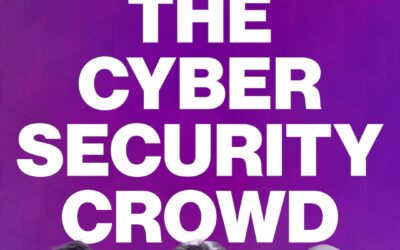“We can pull in all kinds of experts from all walks of life.”
Lisa Kent is the President & Founder of The Luminations Group, LLC. Lisa talks with Anthony and breaks down how their company has explored the best ways to be innovative & collaborate virtually, and how others can do the same.
Defining Innovation
Lisa: “How I define innovation is intentionally bringing new value for consumers, customers, and people. That new value, creating the new value, is innovation. That does not necessarily mean we have to have new products or services, or completely disruptive technologies. It can mean that we have disruptive ways of looking at existing frameworks, brands, models, services, and products. However we create that new value intentionally, that’s innovation to me. It can be both a noun, the innovation itself, and a verb, the process of creating new value.”
The Virtual Pivot
Lisa: “I think we miss the feeling of collaboration you get from being in a room together, there’s nothing like the kind of quick thinking that comes from bumping into somebody in a hallway, or being physically together with a whiteboard in front of you. That said, this is the way of the world today. The good news is, as I said, we’ve been running virtual innovation sessions for a while. There are many tools and platforms that make that productive. Looking at the silver lining of COVID, we’re able to bring in globally more people than we ever might’ve included before in innovation work. Due to platforms like Zoom, Teams, or WebEx.”
Lisa: “We also have the opportunity, because of being remote, to have all kinds of new and different inspiration. So where we might’ve had an expert or a few consumers to co-create with us, today because we’re working virtually, we can pull in all kinds of experts from all walks of life to join us on a Zoom call for 20 minutes to inspire us to think differently. We might be able to have three, four, or five experts. Also double or triple the number of creative consumers than we could have had physically in a room in a hotel suite or in a client’s office. So try to look at the pros of it, make sure that we always keep it engaging and fast paced, and focused on the deliverables.”
Lisa: “We all have less free time. We all work more, but we have the interventions of daily life in our background. We welcome that. We welcome kids on laps, and pets in rooms. When I taught my Rutgers class last week. I asked everybody to introduce their pets if they had them with them. Sometimes that makes us more relaxed and more able to think creatively.”
Lisa: “Being able to have people sitting in their home offices, or at home, means they might be accessible to us versus being on the road, in a plant, or in a lab. While there’s a downside to that, they’re not necessarily going into the opposite. So the upside is we can access their diversity of thought easily by reaching out to other countries, scheduling Zooms at night, early in the morning, or whenever it works for our global partners.”
Think Outside The Box
Lisa: “We always start by keeping the consumer or the customer at the heart of everything we do. So we look to make sure we’re identifying insights about that consumer or customer and bringing them to our clients. Once everybody’s nodding their heads saying, yes, they’re seeing this opportunity or this insight that might not be fully tapped. Then the discussion of how are we going to get at it becomes relevant for everybody. Our job is always to try lots of different tactics to get people to think differently, and to approach projects from a new lens.”
Lisa: “So changing lenses, shifting inspirations, bringing in experts from analog categories. Always nudging our clients to comfortable discomfort, where they might already have gone by themselves our job is to bring them down that path a little bit further. We’ve been playing with the idea of working backwards, starting with where do we want to end up, and how do we work backward to get there. I think it’s a really effective method.”


